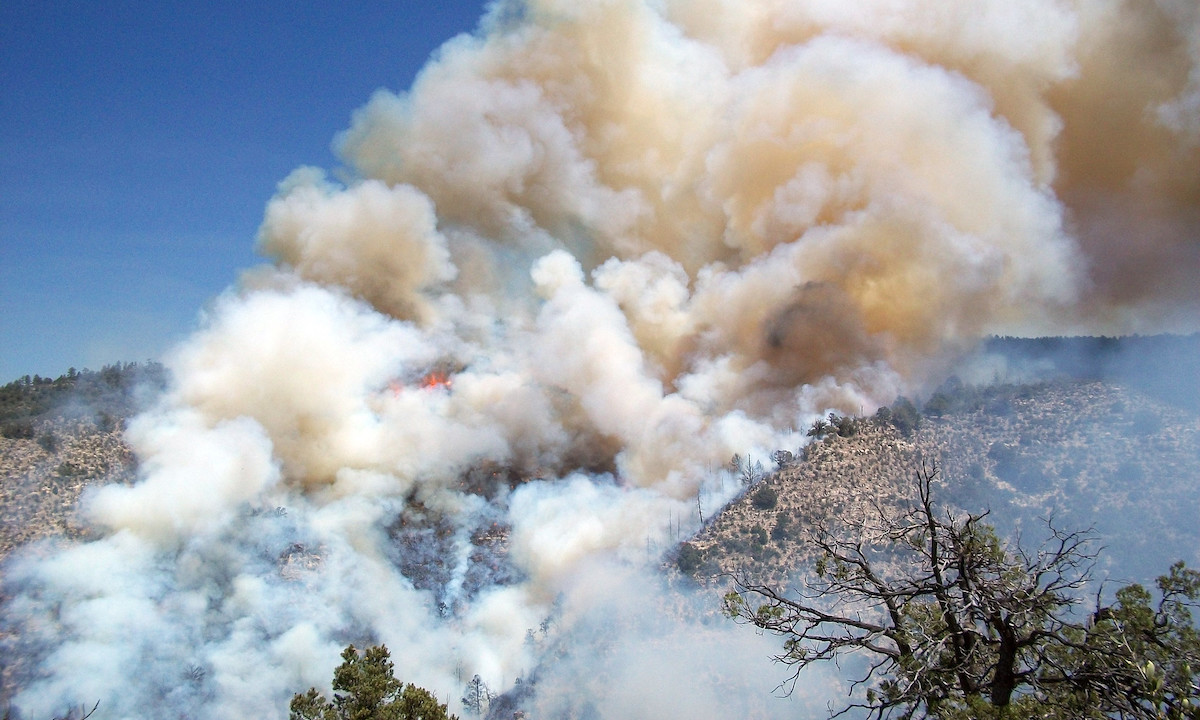

In 2018, Arizona hiker Phil Powers was lost in the woods, suffering from dehydration and kidney failure, when he lit a signal fire to call for help. His actions resulted in a timely rescue—and a 230-acre wildfire and a criminal sentence.
Videos by Outdoors
The sentence, handed down on February 14, includes nearly $300,000 in fines and a year of probation. The defending attorney argued that Powers shouldn’t be held responsible for the crime because of the life-threatening nature of his situation. This is hard to dispute: He’d been off-trail for much of the day, had run out of food and water, and was unable to find his location on his cell-phone map. Parched in the Arizona heat, he’d resorted to drinking his own urine.
When rescuers found Powers, they took him to the Sedona Emergency Department. Doctors found evidence of heat exhaustion, failing kidneys, and severe dehydration. Powers was also suffering from a dangerous, fatigue-induced blood condition called rhabdomyolysis, reports Backpacker. Under those circumstances, it is very likely that Powers’s signal fire ultimately saved his life.

The issue, ruled U.S. Magistrate Judge Camille Bibles, was that Powers didn’t get into that situation by pure accident. Instead, she argued in her verdict, he brought it on himself by showing up for the hike woefully unprepared.
For one thing, he was on the wrong trail—the “Taylor Cabin Loop” instead of the “Cabin Loop,” which was 50 miles away. He had a machete and a large knife but no map, compass, flashlight or headlamp.
“Had Powers engaged in adequate preparation in planning and carried adequate water, food and gear, he would not have found himself in his circumstances. Thus, the court finds that Powers’ necessity defense fails as he created the conditions necessitating the commission of the fires, and his subsequent rescue,” Judge Bibles wrote in her verdict.
The other issue with Powers’s defense was the way he’d lit the signal fire. The American West has been suffering from repeated catastrophic wildfires over the past few years, and Powers took no precautions to prevent starting one of his own. He didn’t clear away brush or use the nearby fire ring. Instead, he piled debris against a standing dead tree and lit the whole thing on fire—then continued walking down the trail. For that reason, Judge Bible ruled him guilty of seven misdemeanors, including lighting a campfire despite an ongoing fire ban, and leaving a blaze unattended.
The sentence comes with one year of probation and about $293,000 in fines. The payments will be made to the U.S. Forest Service to help cover the costs of fighting the wildfire, reports the Washington Post. She also ordered him to complete a hiking safety course.
On February 17, Powers’s attorney began the process of appealing the case.









